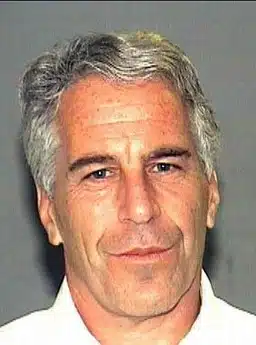 SCHEDULE A CALL
SCHEDULE A CALL
Source: Palm Beach County Sheriff's Department

Source: United States Federal Government

Source: Weill Cornell Medicine
In a shocking incident on Coney Island, two migrants were arrested for their involvement in a violent assault. Daniel Davon-Bonilla, a 24-year-old from Nicaragua, allegedly raped a 46-year-old woman at knifepoint under the Riegelmann Boardwalk. His alleged accomplice, Leovando Moreno, a 37-year-old Mexican migrant, reportedly attacked the woman's boyfriend with a pipe when he attempted to intervene.
This incident has not only highlighted the vulnerabilities faced by homeless individuals in New York City but also brought attention to the complex issues surrounding migrant-related crimes and the policies that govern them.
Davon-Bonilla's criminal history is particularly concerning. He had previously been charged with sexually assaulting a woman at a city-funded shelter, for which he was released from jail just two months prior to the Coney Island incident. Despite being in the country illegally, he was able to remain in New York City due to sanctuary city policies that limit cooperation with federal immigration authorities. These policies have been criticized for preventing the deportation of individuals with criminal histories, thereby allowing them to re-offend.
Moreno, who is also homeless, was charged with second-degree assault and criminal possession of a weapon. His lawyer claims that Moreno did not assist in the sexual assault but was merely trying to break up a fight.
However, his involvement in the incident raises questions about the broader issue of crime among homeless migrants in the city.
Sanctuary city policies are designed to protect undocumented immigrants from deportation, fostering trust between immigrant communities and local law enforcement. However, critics argue that these policies can inadvertently shield individuals with criminal backgrounds from federal immigration enforcement. In this case, Davon-Bonilla's ability to remain in the city despite his criminal record has sparked debate over the effectiveness and safety of such policies.
A source from the Department of Homeland Security (DHS) pointed out that these policies, coupled with the Biden administration's limitations on immigration enforcement priorities, have hampered efforts to deport dangerous criminals. This has led to frustration among federal authorities who find themselves unable to act against individuals with serious criminal records.
The Coney Island boardwalk, where the assault took place, has become a refuge for many homeless migrants. The area's accessibility and public facilities make it an attractive location for those who have been displaced from city-funded shelters. However, this has also led to safety concerns among local residents and visitors, who report feeling threatened by the presence of individuals engaging in illicit activities.
The incident underscores the need for comprehensive solutions to address the intersection of homelessness, migration, and crime in urban areas. This includes providing adequate support and resources for homeless migrants while ensuring public safety through effective law enforcement and policy measures.
Thomas Guiffra, Esq., a seasoned attorney specializing in personal injury and civil rights cases, offers his insights on the legal and policy implications of this incident:"The Coney Island assault is a tragic reminder of the gaps in our current system that allow individuals with criminal backgrounds to slip through the cracks. While sanctuary city policies are well-intentioned, aiming to protect vulnerable immigrant communities, they must be balanced with public safety concerns. It's crucial for local and federal authorities to collaborate more effectively to ensure that individuals with serious criminal histories are not allowed to re-offend.
Moreover, this case highlights the importance of supporting victims of such crimes. Legal frameworks should be in place to provide them with the necessary protection and assistance, ensuring they feel safe to testify and seek justice. As a society, we must strive to create an environment where both migrants and citizens can coexist safely and harmoniously."
The recent assault on Coney Island serves as a stark illustration of the challenges faced by cities grappling with migrant-related crimes. It calls for reevaluating policies that, while designed to protect, may inadvertently expose communities to harm. By addressing these issues head-on, policymakers can work towards creating a safer, more inclusive environment for all residents.
Source:
Thomas Giuffra, Esq. - The Abuse Lawyer NY
551 5th Avenue, 29th Floor,
New York, NY 10017
(646) 413-6394
Hours Of Operation
Monday: 24 Hours
Tuesday: 24 Hours
Wednesday: 24 Hours
Thursday: 24 Hours
Friday: 24 Hours
Saturday: 24 Hours
Sunday: 24 Hours
Cases We Handle
Sexual abuse lawyer
Child abuse lawyer
Clergy abuse lawyer
Private boarding school abuse lawyer
Doctor abuse lawyer
Daycare abuse lawyer
Hazing and Bullying abuse lawyer
Massage spa abuse lawyer